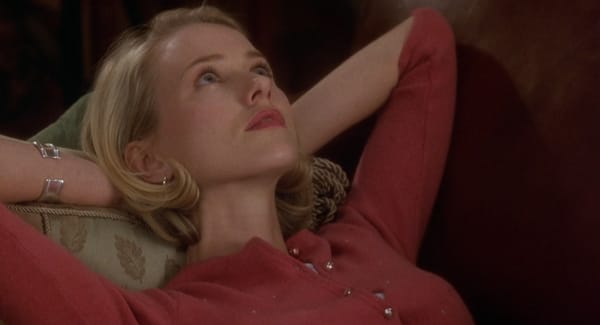Mother Courage
Reviews of "Till," "The Banshees of Inisherin," "Raymond & Ray," and "Descendant."
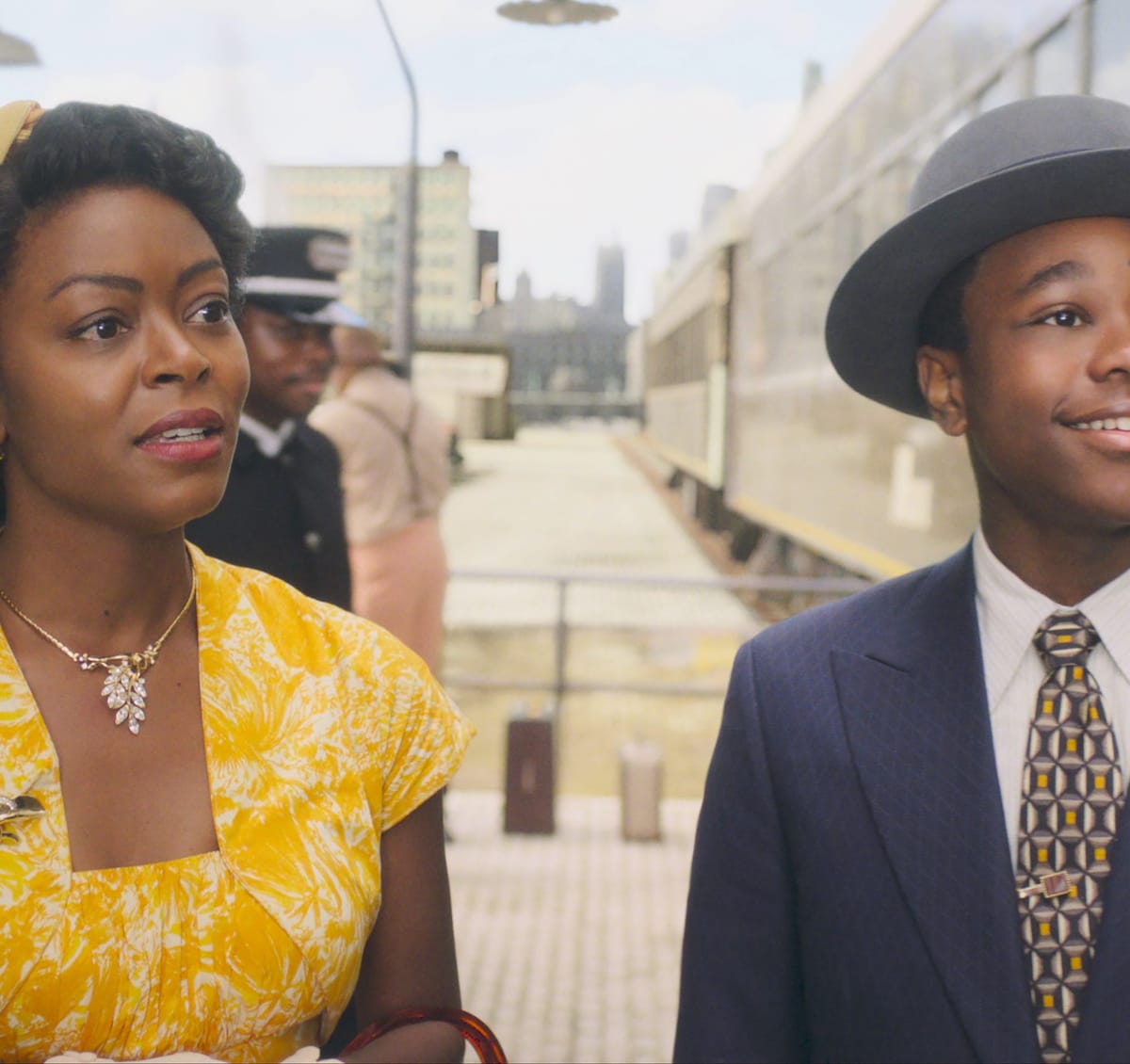
There‘s a cinematic subgenre I think of – we all think of – as the Good For You movie: a film on a worthy but difficult, even unpleasant subject, or a recreation of a part of our history that’s uncomfortable to face. (In America, that defaults to 403 years of racism, institutional and otherwise.) These movies often win awards up to and including the best-picture Oscar, with “Twelve Years a Slave” (2013) being the obvious example, and we go to them – or not – as a form of medicine, knowing that we need to know, to confront, to understand, and possibly to take a step or two toward healing. We also know that enjoyment will not be on the menu, and in a popular culture neurotically addicted to force-feeding us enjoyment and nothing but enjoyment that’s a hard, hard sell.
This is a short way of saying that you may not want to unwind after a long week by taking your partner to see a movie about one of the most brutal murders and shocking injustices of the 20th Century, and I cannot say I blame you. Attendance at the preview screening of “Till” (⭐ ⭐ ⭐ 1/2 , in theaters) I attended was sparse and, aside from working critics, mostly Black; the audience took it in silently except for an older woman down the row from me who now and then talked quietly back to the screen in tones of grief and admonishment. “Till” is a quintessential Good For You movie, but it’s also a good movie, rich with detail and beautifully directed, so how do you get moviegoers – specifically white moviegoers – to give it the attention it merits as a film and as history? It’s not a question of sweetening what needs to remain a sour pill but allowing the audience a way in through originality, a freshness of vision. The way, say, “Spotlight” viewed the catastrophic damage of institutionalized pedophilia through the patient, painstaking revelations of journalistic procedure.
In “Till,” that freshness comes from and through the movie’s central performance. Many actors are able to convey powerful emotional states while seeming to do very little; rare are the directors who actually let them do it. The two most recent feature films made by the Nigerian-American writer-director Chinonye Chukwu – both of which explore the interiority of a Black woman under extreme duress – reveal her as a master of the entrusting close-up. “Clemency” (⭐ ⭐ ⭐ 1/2 , streaming on Hulu and for rent elsewhere), a prizewinner at Sundance 2019 that was released without fanfare in 2020, is about a prison warden (Alfre Woodard in an overwhelming performance) whose pro-death-penalty stance leads her internal operating system to the verge of collapse. Now “Till” dramatizes how a grieving mother is forged into an unyielding weapon of social change.
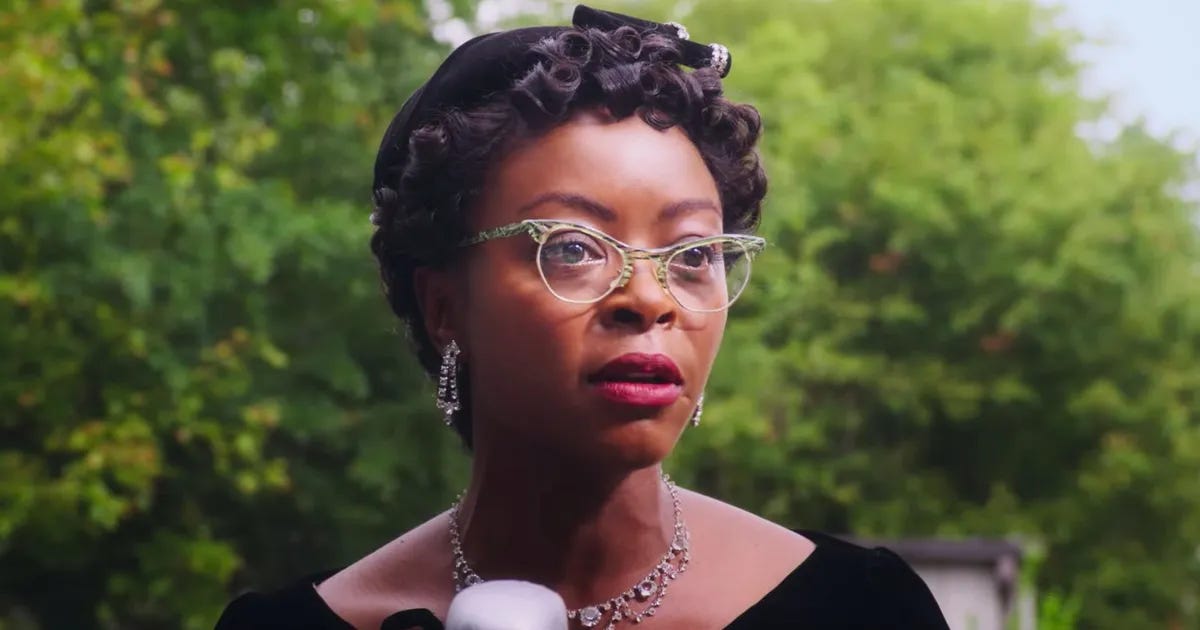
Chukwu does this through the simple expedient of keeping her camera intimately close to her lead actress, Danielle Deadwyler (above), registering thoughts and feelings roiling just beneath the surface tension of a face while subtly altering aspects in the background or side of the frame. The film is the Emmett Till story, but not exactly: It uses the 1955 lynching of the 14-year-old Till as a springboard into the mind and experience of his mother, Mamie, played by Deadwyler (“The Harder They Fall,” “Station Eleven”) with an emotional translucency that at times becomes unbearably affecting. Chukwu has a command of technique that rarely overplays its hand: When Mamie first hears the news that her missing son’s body has been found, the camera pulls the old “Vertigo” trick of zooming out while dollying in on the mother’s face, but it does so with such quiet, authoritative subtlety that the feeling completely overshadows the gimmick. In another scene, a monologue by the mother is rippled by her fiancé’s arm coming in from outside the frame to rest gently on her shoulder, a touching visual reminder of a greater support system Mamie is learning to rely upon.
Deadwyler rises to her director’s faith with a performance of great range, both emotionally and chronologically. “Till” begins with the journey of the naive, exuberant Emmett (Jalyn Hall) – called Bobo by all who know him – from his Chicago home to visit his cousins in rural Mississippi, where his playful wolf-whistle at a white storekeeper (Haley Bennett) brings the homicidal rage of the Klan down on his head. The movie skirts the edges of the murder itself; Chukwu is more interested in how Emmett’s mother becomes a figure of implacable public rebuke, reluctantly at first and then with mounting rage and determination. Activists from the NAACP cluster around her in the days following the killing, all of them men, all of them eager to use her to serve the cause. “Till” allows us to bristle with Mamie as she resists the exploitation but then lets us see, as Mamie does, how necessary she now is as an argument for civil rights and basic humanity. That’s what the movie’s about: the forces and choices by which a person wills herself into a symbol. The maternal sorrow that powers Mamie’s fury allows her to shame the others with risks they won’t take, insisting on an open-casket funeral so the world can see the ruined body of her son that white supremacy has left in its wake.
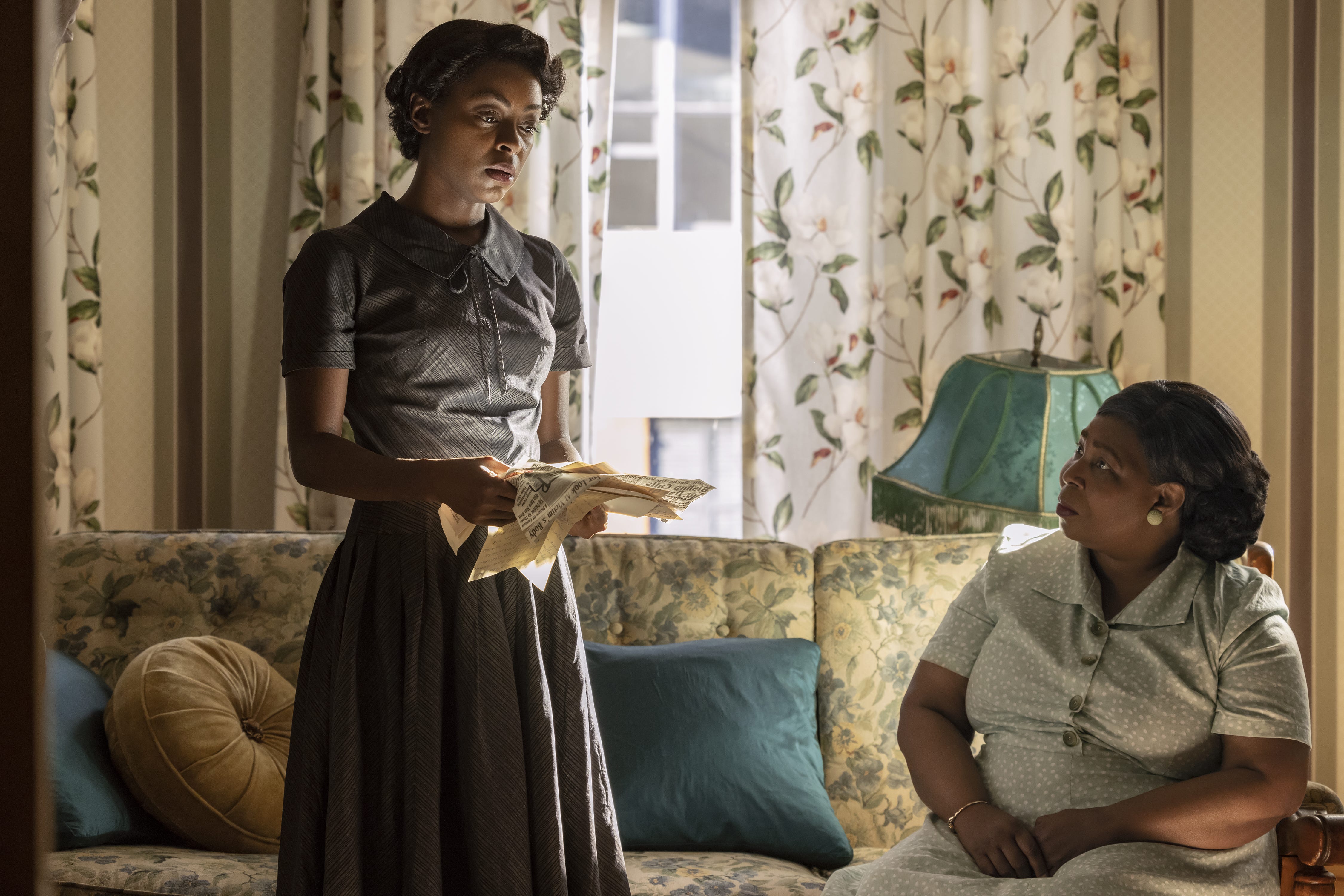
There are other characters at play: Tosin Cole is a figure of warmth and support as the young Medgar Evers, and Jamie Lawson has a honey of a scene as Myrlie Evers, drawing strength from Mamie as she talks of waiting for her husband to come home alive every night. (A closing credit reminds us that Evers was assassinated in front of his wife and children eight years after the events of this movie.) Frankie Faison anchors the later scenes as Mamie’s father, a one-time reprobate turned rock, and is that Whoopi Goldberg (above right), nearly unrecognizable as Mamie’s mother, Alma? It is. Yet Chukwu hands the film to Danielle Deadwyler, a gift from a born filmmaker to a gravely talented actor. Together, they reclaim the woman inside the symbol and, in the process, honor both.
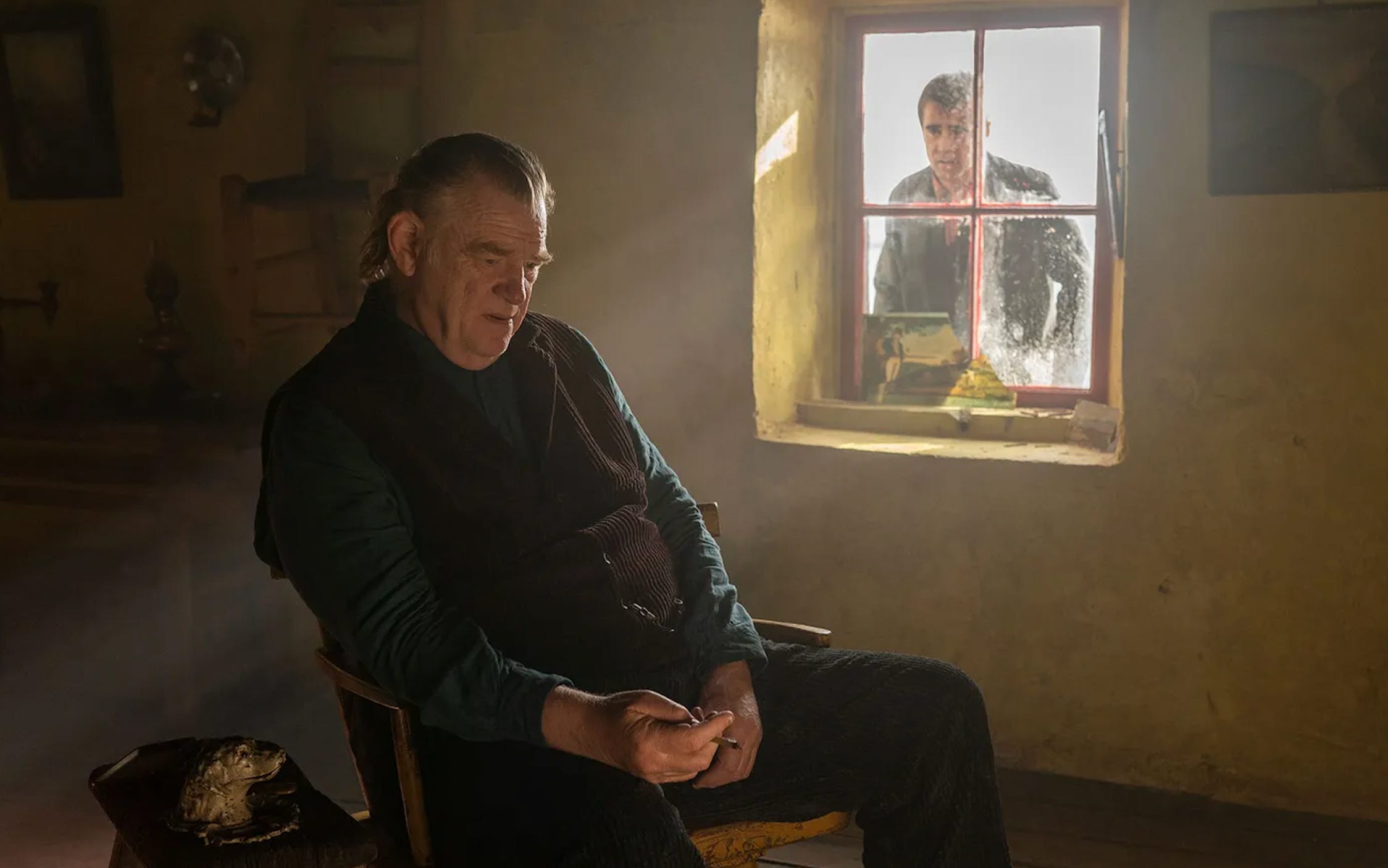
All I will say about “The Banshees of Inisherin” (⭐ ⭐⭐ ⭐, in theaters) is: Go. I blow hot and warm on Martin McDonagh, an almost scarily brilliant playwright, screenwriter, and director who rarely lets us forget how clever he is – when he’s off his speed, as in 2012’s “Seven Psychopaths,” his movies can swagger up to the edge of obnoxiousness, but when he’s really cooking (“In Bruges,” 2008), all is forgiven. “Three Billboards Outside Ebbing, Missouri” (2017), his best-known work, split the difference, and now “Banshees” obliterates the argument in a fierce, cleansing burst of bitter Irish absurdism. The plot has the simplicity of an anecdote told in a pub: In a 1920s island village, the friendship of two longtime chums, Pádraic (Colin Farrell) and Colm (Brendan Gleeson), comes asunder when Colm decides he’s done with Pádraic. No real reason, just done, and Pádraic – the simpler of the two, as Colm is the more obstinate – finds himself spiraling into unaccustomed anxiety over the jilting. Things escalate, as feuds do, and suddenly we’re on the precipice of folk tales and local legends, edging toward the Biblical. Or the metaphorical: It’s no coincidence that the smoke and gunfire of the Irish Civil War can be glimpsed and heard on the mainland, as critic Alissa Wilkinson digs smartly into in her review of the film for Vulture. Kerry Condon is a welcome note of sanity as Pádraic’s sister, desperate to get off the island and away from men, and Barry Keoghan is extremely funny as the one character who keeps Pádraic from holding down the title of village idiot. Farrell and Gleeson, reuniting from “In Bruges,” know each other’s rhythms by now and concatenate beautifully; Farrell especially seems to get better with each passing year, and in his hands Pádraic becomes a small-scale Shakespearean tragedy: a kind man forced to learn the necessity of being cruel.
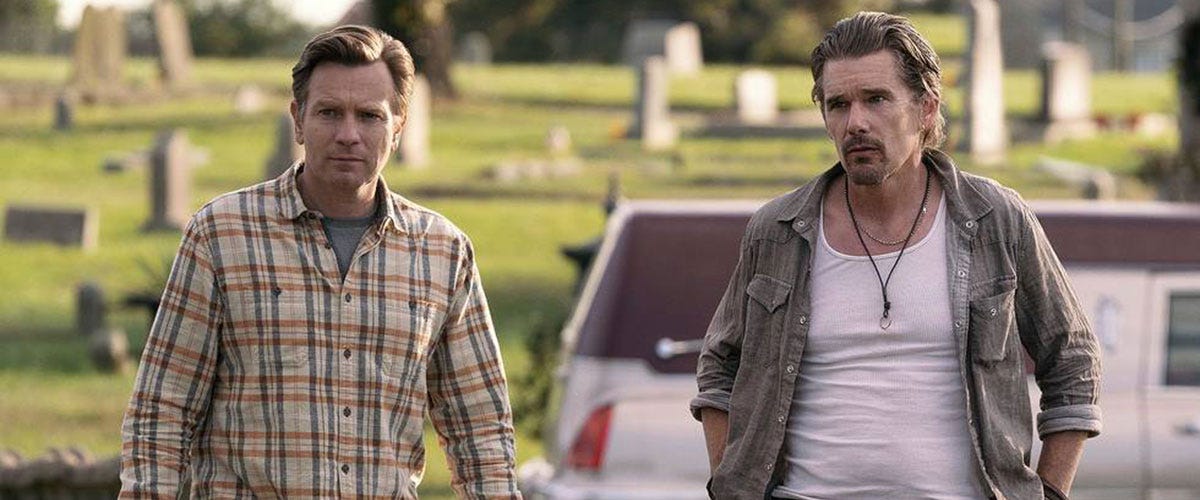
As long as we’re talking about acting, there are three and a half excellent performances in “Raymond & Ray” (⭐ ⭐ 1/2), a mildly curdled bit of brotherly whimsy premiering on Apple TV+. Ewan McGregor (above left) and Ethan Hawke (above right) play half-brothers on a road trip to their detested father’s funeral; McGregor is Raymond, the uptight one, and Hawke is Ray, the ex-addict layabout. (Their names are offered up as an example of dad’s sense of humor). Maribel Verdú, the onetime siren of “Y Tu Mama Tambien” (2001), is the late father’s Brazilian ex-lover and a delightful Sophie Okenedo (“Hotel Rwanda”) is his hospice nurse; the brothers are drawn to the women and you understand why, since both actresses create actual characters out of writer-director Rodrigo Garcia’s male-fantasy doodles. Hawke is another example of an actor who’s improving with age, and he knows how to make Ray’s self-loathing both sexy and self-absorbed, but the Scottish McGregor battles Raymond’s American accent to a bland standstill. Garcia, the son of novelist Gabriel García Márquez, has made some good movies – “Nine Lives” (2005), “Albert Nobbs” (2011), the HBO series “In Treatment” – and some misfires, but this is the first time it feels like he’s running on autopilot.
Finally, arriving today on Netflix is “Descendant” (⭐ ⭐⭐ ⭐ ), a terrifically moving documentary from Barack and Michelle Obama’s Higher Ground Productions that won an award for “creative vision” at this year’s Sundance Film Festival. Reviewing the film in January, I wrote: “Filmmaker Margaret Brown brings us to Plateau, Alabama, known as Africatown to its inhabitants, whose ancestors arrived on the last slave ship to come to America, in 1860, fifty years after the slave trade had been banned by Congress. That ship, the Clotilda, was burned by its owners after the voyage, but its remains were located in 2018, and Brown’s cameras capture a hard-pressed Black community determined to honor its history and retain control of the telling. A film both maddening – the descendants of the Clotilda’s owner still own much of the area’s land (which they’ve sold to heavy industry) but refused to be interviewed – and awe-inspiring. Zora Neale Hurston’s “Barracoon,” posthumously published in 2018, told the story of Cudjo Lewis, who came on the Clotilda and lived to 1935, and “Descendant” includes remarkable film footage of Lewis shot by Hurston in 1928 – history and the shame it carries transformed into a survivor’s tale.
In other words, a Good For You movie about how confronting the past with clarity and determination can bring out the Best In Us.
If you enjoyed this edition of Ty Burr’s Watch List, please feel free to share it with friends.
If you’re not a paying subscriber and would like to sign up for additional postings and to join the discussions, here’s how:





